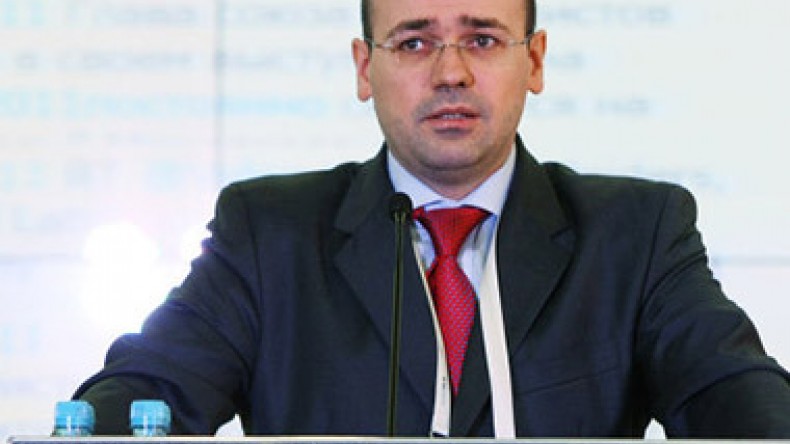
Konstantin Simonov: Iran will strengthen its armed forces in the Caspian to exercise pressure on Azerbaijan
After the sanctions are lifted Iran will strengthen its armed forces in the Caspian and the militarization will be a factor to exercise pressure on neighboring countries, primarily on Azerbaijan, Konstantin Simonov, the director of the Russian National Energy Security Fund in an interview with analytical resource Expert.ru.
Simonov noted that Iran has never been a partner for Russia, though Moscow and Tehran had common interests and positions.
“Iran has been one of the factors which allowed prolonging the signing of the agreement on the division of Caspian (after which Azerbaijan and Turkmenistan on legal basis could have built Trans-Caspian gas pipeline disadvantageous for Russia). It’s one thing to use Iranian factor to disturb the construction of Trans-Caspian pipeline and another thing to face the growing power of Iran in the Caspian,” he said.
Simonov said that neither Turkmenistan nor Kazakhstan and nor Azerbaijan don’t have a real navy and the Russian military superiority is apparent there.
“However when Iran will acquire money the first thing it will do is spending that money on new level of militarization. It is clear that the main threat to Iran comes from the other side of the Strait of Hormuz, from Saudi Arabia, but I’m sure that Iran will strengthen its armed forces in the Caspian as well. As a result there will be new competent military power which will be able to spend on arming far more money than Azerbaijan. Iran will become a major regional power while militarization will be one of the arguments of that process as well as a factor of pressure on neighboring countries, primarily on Azerbaijan,” Simonov stated.
Simonov when answering the question about how the relations between Iran and Azerbaijan will change in case of the lifting of sanctions noted that the elite of Baku would like to see Iran in isolation and under sanctions as Iran poses a serious threat to Azerbaijan.
“At least for the reason that more Azerbaijanis live in Iran than in Azerbaijan, in a complex country where already the extraction of oil is stagnated and consequently the budget revenues of Baku appear under threat. New gas projects, contrary to the popular opinion, are not able to compensate the decline; gas is far cheaper than oil. Thus, I’m sure that Iran will take advantage from the situation and will start financing pro-Iran projects in Azerbaijan,” he said.
Russian expert believes that Baku will have to seek for options how to contain Iran and it’s quite possible that under these circumstances negotiations with Russia will take place. He stressed that from the example of Armenian-Azerbaijani relations Azerbaijan knows that in regard to some issues it is difficult to deal with Moscow. “However, what we can offer to Baku is not yet clear for me,” Simonov said.
He also noted that Russia for a long time defended Iran as it should have done so, otherwise extremely dramatic events or even a kind of “orange revolution” would take place.
“Besides, it is unlikely that the Iranian elite will implement the agreements between us; they already have agreements with the United States of America, which have contributed to the lifting of sanctions. All issues will be decided upon with Washington and I have serious doubts that our opinion will be taken into account, concerning economic issues as well. All the breaks are always associated with the procurement of the products from the countries where sanctions have been lifted. The technology is given a work-out and it is obvious that all the supplies and technology of the West will be directed to Iran. “Our chances there with our products are low,” the director of the Russian National Energy Security Fund said.
However, he noted that the fears concerning the oil of Iran which will run to markets after the sanctions are lifted are somewhat exaggerated and Iran still needs to revive its level of production it had before the sanctions.
Newsfeed
Videos






























